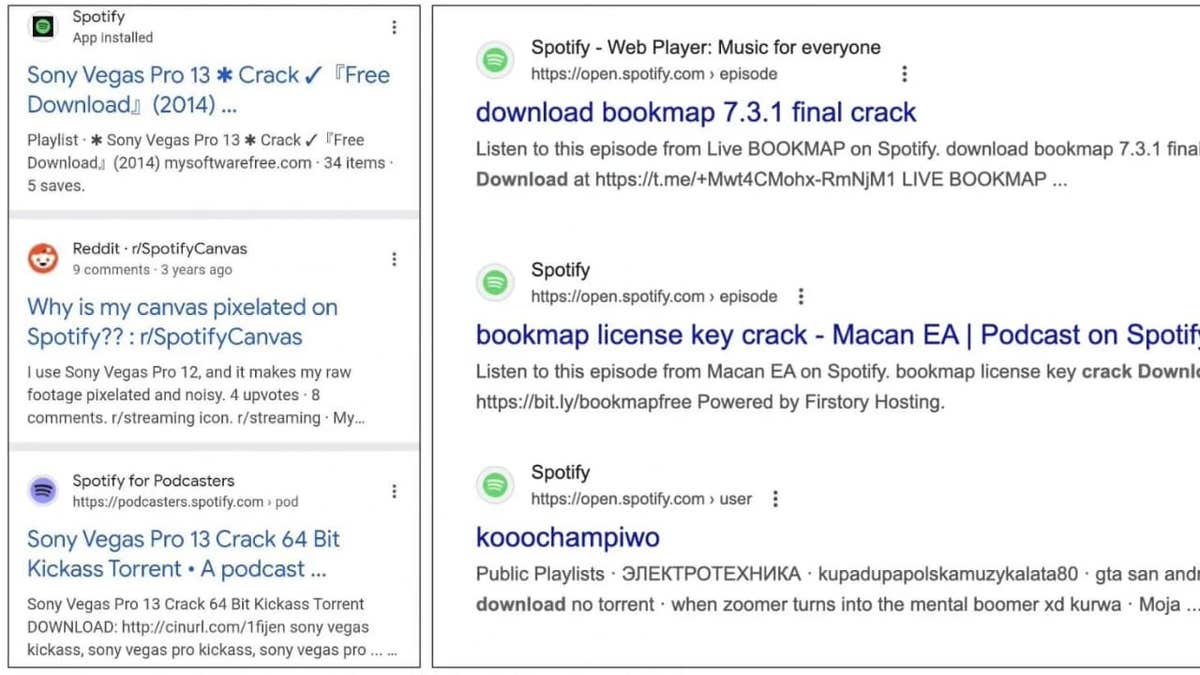Many of us use Spotify every day, whether to listen to songs, podcasts or audiobooks. Some of us create playlists of our favorite songs, while others save playlists made by others.
In case you didn’t know, Spotify allows you to create public playlists that anyone can save and listen to. You’d think this is a harmless feature, but spammers have found a way to misuse it.
They’re using Spotify playlists and podcasts to push pirated software, game cheat codes, spam links and malware sites. I’ll discuss the details of this emerging online scam and share tips on how to stay safe.
5 DAYS LEFT! I’M GIVING AWAY A $500 GIFT CARD FOR THE HOLIDAYS (ends 12/2/24 12 pm PT)
Image of Spotify app on phone (Kurt “CyberGuy” Knutsson)
How the Spotify scam works
As reported by BleepingComputer, this scam works by misusing Spotify’s popularity and trustworthiness. Scammers exploit Spotify playlists by injecting targeted keywords, such as “free download,” “crack” or “warez,” into titles and descriptions.
These keywords are designed to align with popular search terms. Since Spotify’s web player pages are indexed by search engines like Google, these spammy results appear in user searches, driving traffic to their links. For example, a Spotify playlist titled “Sony Vegas Pro 13 Crack…” was found promoting “free” software sites in its title and description, directing users to questionable external links.
The scam isn’t limited to playlists. It extends to podcasts as well. Scammers create podcasts with multiple short episodes, typically under 20 seconds, using synthesized speech to direct listeners to click links in the description for free content. These podcasts often target users searching for pirated ebooks, audiobooks or game cheats. While the content may appear legitimate at first glance, clicking on the links often results in being redirected to unsafe pages that further exploit users.

Scammers exploit Spotify playlists by injecting targeted keywords into titles (BleepingComputer)
4.3 MILLION AMERICANS EXPOSED IN MASSIVE HEALTH SAVINGS ACCOUNT DATA BREACH
The end goal
The main goal of this scam is to use Spotify’s trusted reputation and search engine visibility to get people to click on shady links and visit sketchy websites. Scammers make money through fake ad clicks, bogus surveys and affiliate links, while also spreading malware by tricking users into downloading harmful software or extensions.
They also try to steal personal info through fake…
Click Here to Read the Full Original Article at FOX News : Tech…

